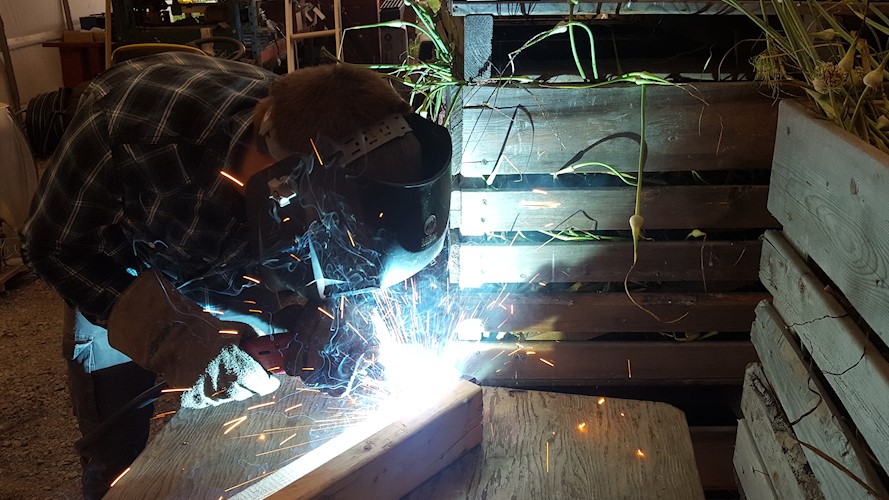
About
Bioresource Engineering is a unique branch of engineering that encompasses biological engineering, agricultural engineering, food engineering, environmental engineering, and other traditional engineering disciplines, focusing on applying professional engineering skills to biological systems. The fundamental basis of Bioresource Engineering is transdisciplinary interactions between engineering science and design, with biological, physical, chemical, and other natural sciences. Bioresource engineers strive to design and implement solutions to sustain food supply and the well-being of society while maintaining high-quality of the environment for generations to come.
Together with other B.Eng. programs offered by peer engineering departments in the Faculty of Engineering, Bioresource Engineering is accredited by the Canadian Engineering Accreditation Board. Therefore, graduates of the Bioresource Engineering program are eligible for registration as professional engineers in any province in Canada, as well as some international jurisdictions. The available Professional Agrology option also qualifies graduates to apply for registration in the Ordre des agronomes du Québec and similar licensing bodies in other provinces.
Optional Streams
The complementary portion of the Bioresource Engineering curriculum is organized according to three non-restrictive streams: Bio-Environmental Engineering, Bio-Process Engineering and Bio-Production Engineering.
Students who follow the Bio-Environmental Engineering stream will learn to be responsible stewards of the environment and natural resources. This stream includes the study of soil and water quality management and conservation, organic waste treatment, urban and rural ecology, sustainability engineering, biodiversity preservation, climate change adaptation, and many other related topics.
Through the Bio-Process Engineering stream, students apply engineering to transform agricultural commodities and biomass into products such as food, fibre, fuel, and biochemicals. Topics include the engineering of foods and food processes, physical properties of biological materials, post-harvest technology, fermentation and bio-processing, the management of organic wastes, biotechnology, the design of machinery for bioprocessing, etc.
Students who follow the Bio-Production Engineering stream use natural sciences and engineering skills to design systems and machines for the production of different types of crop, animal-based products, and biomass. Students learn about design of machines and structures, different production systems and technologies, instrumentation and controls, geospatial data management, precision agriculture, and emerging intelligent bio-production concepts.
In addition, students may choose to follow the Professional Agrology option of Bioresource Engineering (usually associated with the Bio-Production Engineering stream) as well as the Bioresource Engineering Honors Program. Multiple minors are also available.
Students also have the opportunity to pursue a minor. Several possibilities include: Agricultural Production, Environment, Ecological Agriculture, Biotechnology, Computer Science, Construction Engineering and Management, Entrepreneurship, and Environmental Engineering.
Courses
The lists of course requirements are available for:
Bachelor of Engineering (B.Eng.) Bioresource - Major Bioresource Engineering (113 credits)
Bachelor of Engineering (B.Eng.) Bioresource – Honours Bioresource Engineering (113 credits)
Bachelor of Engineering (B.Eng.) Bioresource - Major Bioresource Engineering - Professional Agrology (113 credits)
Bachelor of Engineering (B.Eng.) Bioresource - Freshman Program (30 credits) – for non-CEGEP students
For more information, please visit the Bioresource Engineering Undergraduate Programs page.
Careers
- Bioproducts and bioenergy industry
- Environmental consulting
- Agriculture and agri-food sector
- Water resource management
- Specialized machinery and new technologies
- International development agencies
For more career options, visit the Careers in Bioresource Engineering page or the CaPS What can I do with my studies? tool.